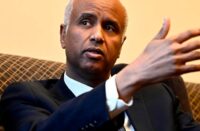For the past two decades, Monique Henry has been imparting English education in Quebec without any formal certification. Often referred to as an ‘unqualified’ teacher, she has picked up the ropes of her profession through sheer experience and perseverance.
In 2006, when she commenced her teaching career, she was faced with the challenge of handling unruly students. Since she didn’t have a university degree in education, she was not equipped with techniques to manage a classroom. “It’s like learning to fly a plane while it’s still in the air. You learn as you go along,” said the 46-year-old Henry, currently teaching English as a second language at a high school in St-Jérôme, Quebec, on a yearly contract.
Henry represents a growing section of uncertified teachers in Quebec’s schools. Education specialists argue that the provincial government is becoming increasingly reliant on these teachers as the shortage in the field intensifies. This trend not only threatens the quality of education but also overburdens the school staff.
Uncertified teachers may possess university degrees in non-teaching disciplines or might not have any tertiary education at all. Although they come from diverse backgrounds, they share a common trait – they are not officially certified by the provincial government to teach.
In Quebec, teachers traditionally acquire certification after completing their bachelor’s degree in education and securing a teaching license. However, due to the scarcity of teachers, the province has lowered the certification standards. Despite this, many uncertified teachers see no incentive to get certified as the high demand ensures that schools hire them regardless of their educational qualifications.
In December, the Quebec Education Department reported that there were 9,184 uncertified teachers in public schools, up from 8,871 in May 2024 and 6,654 in May 2023. However, these figures only include teachers on longer-term contracts and do not account for substitute teachers, who form the majority of uncertified teachers.
Nicolas Prévost, president of the Quebec federation of school administrators, expects the number of uncertified teachers to surge significantly in the coming years due to low university enrolment in education programs and the government’s struggle to replace retiring teachers.
Geneviève Sirois, a professor of school management at Université TÉLUQ, concurs, “We are heavily dependent on uncertified teachers currently.” She stated that the number of uncertified teachers has doubled in less than a decade from about 15,000 in 2015.
Unqualified teachers, such as Matthieu Théorêt, often rely on the help of their colleagues due to lack of preparation time. The strain extends to secretaries and other support staff who have to compensate for the organizational gaps.
To address this issue, new university programs have been initiated to expedite the teacher certification process. However, the financial incentive for uncertified teachers to become certified is minimal due to the high demand for teachers that ensures regular work and nearly similar pay for both certified and uncertified teachers.
Despite the challenges, Henry is on her way to acquiring her teaching license, drawn back to the classroom by a new remote-learning bachelor’s degree program at Université de Sherbrooke. “Teaching has always been my passion,” she said.





